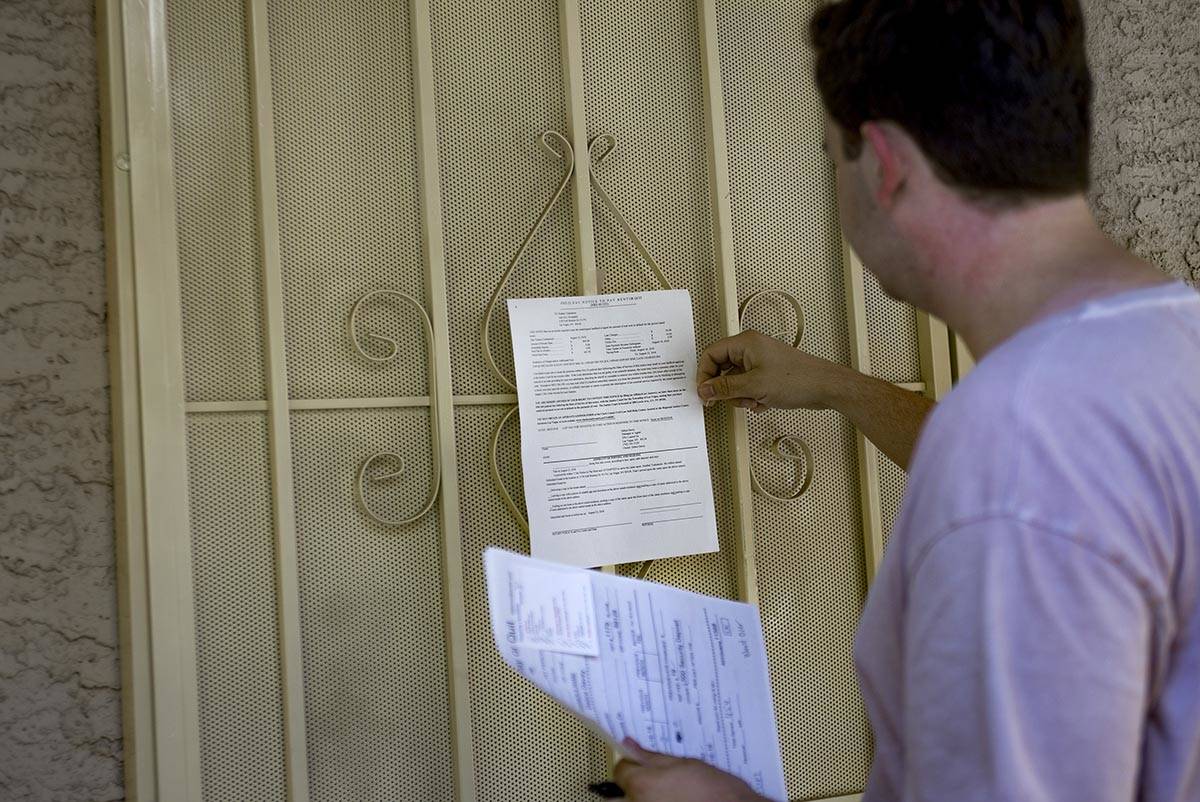COMMENTARY: Landlords say: Enough is enough
No other industry has been asked to give away its goods and services for free during this global pandemic. No other industry has had a cap placed on its ability to charge a fair market price for its products or services. And no other industry facing this situation provides one of the basic human necessities: housing.
Rental housing providers in Nevada and nationwide have been forced by our federal government to house everyone for free, if needed, only to learn months later that not all renters would qualify for government-provided rent assistance.
In recent months, government leaders in Washington promised us that the eviction moratorium would not be extended again. But just days after the federal eviction ban was allowed to expire on July 31, President Joe Biden broke that promise.
How can the federal government extend an eviction moratorium that the U.S. Supreme Court hinted could not pass constitutional muster, just to buy time, yet in the same week call on several corporate rental housing providers to explain and provide documents on their lawfully adjudicated evictions?
This new moratorium has more to do with rental assistance than increased COVID-19 cases. At the end of the day, rent assistance distribution is the answer to make landlords and tenants whole.
As Nevada property owners, we are extremely disappointed that the transparency promised by newly passed state law Assembly Bill 486 is just not happening.
Rental assistance programs need to work with the courts, mediators and landlords. Thousands of applications have been denied, and those tenants continue to be protected and housed for free. The CARES Housing Assistance Program in Clark County needs to provide full transparency, and we have to move forward with those who were denied. Or else Gov. Steve Sisolak needs to expand the landlord program to reimburse all landlords who continue to house those who did not qualify for rent assistance.
The longer the eviction moratorium stays in place — and the longer it takes for rental assistance to reach those who desperately need it — the worse the housing affordability crisis will be on the other side of the pandemic.
The CDC’s eviction order leaves renters facing insurmountable debt and jeopardizes the ability of rental housing providers to provide safe, sustainable and affordable housing. The distribution of critical rental assistance has been painfully slow. Renters and rental housing providers desperately need these funds to catch up on their bills.
The industry has been left to foot the bill for rental arrears for more than a year now — and, as a small profit margin industry, many rental housing providers won’t be able to hold on much longer, given:
■ Only 10 cents of every rental dollar is profit.
■ Small mom-and-pop landlords are struggling and aren’t the exception. They own more than 50 percent of the nation’s rental housing stock (about 22.1 million units).
■ About 30 percent of mom-and-pop landlords are considered low- to moderate-income Americans, meaning they make less than $50,000 per year, according to a Brookings Institute report.
The bottom line is that eviction is always our last resort. The housing industry is in the business of housing people and trying to find another tenant means additional lost rent and more hassle for housing providers.
Enough is enough. Rent assistance needs to be made a top priority and be distributed to those in need at a much faster pace, making landlords and tenants whole.
Susy Vasquez is the executive director of the Nevada State Apartment Association.






















